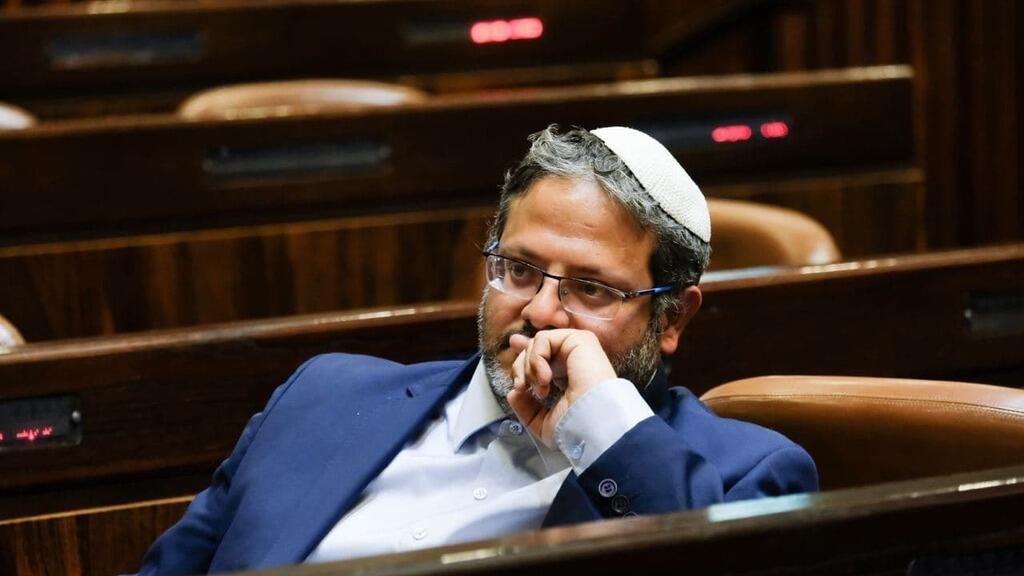Getting your Trinity Audio player ready...
As the new coalition is starting to take shape, it appears there will likely be no Arabs, few women, and a small representation from the LQBTQ community in the new Netanyahu-led right-wing government coalition.
The path to a right-wing government led by former Prime Minister Benjamin Netanyahu became clear last week when the results of the national election became final.
Netanyahu’s Likud party, together with two ultra-Orthodox parties and the nationalist Religious Zionist f, won a clear majority with 64 of the 120 seats in Israel’s parliament, known as the Knesset.
Netanyahu already has started holding informal coalition negotiations, though the official process has not yet begun. President Isaac Herzog will receive the official election results later this week and he will then task the candidate most likely to form a government with doing so.
Though it is not yet formed, the new government already is being criticized for not representing large parts of Israeli society.
The overwhelming majority of the coalition’s lawmakers will be men. Among the names mentioned for ministerial portfolios, there are only three or four women. The coalition lawmakers will all be Jewish, and there is a small representation from the LGBTQ community.
The ultra-Orthodox parties do not allow women to run for public office.
Members of the Religious Zionism alliance, the third largest in the incoming parliament, have made anti-LGBTQ remarks repeatedly, and have spouted consistent anti-Arab rhetoric. This has raised concern that not only will there be less representation for minority groups, but that promotion of equal rights will be stalled under the new government.
Known as the “change government,” the outgoing coalition that came after over a decade of Netanyahu’s leadership, was far more diverse. With parties from the extreme left to the extreme right, the outgoing government also had the historic participation of an Arab party and 35 women serving in the Knesset, or 29% of all Knesset members. In the new Knesset, these winds of change appear to have passed.
Not only is the government less diverse, the Knesset as a whole has less representation for minorities. One Arab party, Balad, did not pass the threshold needed in order to enter parliament, thus decreasing Arab representation in the Knesset. Arabs make up 20% of Israel’s population and are now represented by just ten seats. The far-left Meretz party, a dovish party that advocates for a Palestinian state and against Israel’s occupation of the West Bank, also will not be in the Knesset, after falling short of the 3.25% of votes needed. Meretz is led by Zehava Galon, a veteran female Israeli politician.
Also absent from the next parliament is outgoing Interior Minister Ayelet Shaked. Her right-wing Jewish Home party also failed to cross the electoral threshold, further reducing female presence in the political sphere.
The number of women in the government “is an expression of the ability to bring to the agenda issues that are important to women,” said Hadass Ben Eliyahu, director of Yoda’at-She Knows: Israel Knowledge Center on Women and Gender, at the Van Leer Jerusalem Institute. “The less women, the more chances of less diverse representation. It is not just enough to be a biological woman representative. Women who are elected need to be willing to work for women’s rights, for their status and to reduce the gender gap,” she added.
Not everybody is lamenting the lack of female representation.
“People should be elected based on their professionalism and experience, not because of their gender,” said Ayelet Schlissel, a strategic and media advisor. “Voting for someone just because they are female is to degrade women’s talent and abilities.”
The election result reflects the Israeli public’s disinterest in equal representation for women, which will be reflected in the government.
“We certainly need women in politics,” Schlissel added. “There will be women with ministerial portfolios and there are more and more women in senior positions in government ministries. We are not returning to the old ages. There was a democratic election and people voted according to their interests.”
Women in Israel still have a long way to go in terms of gender equality. According to the Organization for Economic Cooperation and Development (OECD), the gender pay gap in Israel is the second highest among OECD countries, after South Korea. This is just one example of inequality for women.
Yet in a highly polarized society, voting patterns are largely identity-based. Israelis have conducted heated debates on the future of Israel as a Jewish state and there has been little talk about major issues facing society.
“Research shows that Israelis do not vote according to the representation of certain groups in a party,” Dr. Liron Lavi, an assistant professor in the Department of Political Studies at Bar-Ilan University. “People vote according to their positions and issues that are important to them, largely disregarding representation.”
For the first time in recent decades, there also will not be Druze participation in Knesset. The Likud party, which has in the recent past had Druze lawmakers did not have any candidates in positions that entered parliament.
Recent amendments related to abortion rights in the country made by the outgoing health minister could be annulled by the new government. So could reforms in LGBTQ rights. Certain members of the new coalition have said they favor canceling or outlawing gay pride parades. Israeli media has quoted Netanyahu in closed conversations as promising that the status quo on LGBTQ rights would not change when he returns to power.
“We could see new policies and different laws regarding different groups,” said Lavi. “There will be an absence of diverse voices.”
“We still do not know (what laws passed under the) current legislature will be changed and harm rights that are currently given under law,” said Ben Eliyahu. “Several politicians have already voiced their wish to reverse abortion rights. We are seeing the closing of ranks and the pushing of women outside of the political sphere.”
With the government exhibiting a very narrow representation of Israeli society, this might further discourage minorities from entering politics.
“The Israeli system is a proportional one which encourages the representation of different groups,” Lavi explained. “Time will tell. If this will be a continuous trend, then maybe legislative measures should be taken, but it is too soon.”
For the Arab sector, which makes up a substantial portion of Israel’s population, representation is especially critical. Plagued with indiscriminate violence within their communities, perpetual discrimination in the workforce and large gaps waiting to be closed, the Arab community needs its voice to be heard, experts say.
“Clearly this is a far-right, even fascist, government,” said Maisam Jaljuli, co-chair of Sikkuy, a Jewish-Arab nonprofit organization aimed at promoting equality and partnership. “This means that the influence of Arab parliamentarians will be very limited. Yet, even from the opposition, the Knesset is the most important arena to take part in.”
Minority groups are now far from the decision-making table and their interests are likely to be pushed aside.
“There is a lot of concern that this government will harm any efforts toward equality between Jews and Arabs,” said Jaljuli. “Either the Arab society will be excluded from decision-making, or worse, be the target of harm.”
Itamar Ben-Gvir, one of the leaders of the Religious Zionism party, is eyeing the Interior Ministry portfolio, which would place him in charge of the police. In the past, Ben-Gvir has called for the expulsion of “disloyal” Arab citizens, frequently referring to them as “terrorists” who need to be stripped of their Israeli citizenship.
As Netanyahu made his comeback last week, the participation of an Arab party in government seems to be very distant.
During previous Netanyahu governments, a series of laws that discriminate against Arabs was adopted, further alienating Arab society.
“The Arabs will always be treated as the ‘other’ part of society, not part of it,” said Jaljuli. “There is no real partnership.”
Still, the fact that the outgoing government had an Arab party’s participation leaves a glimmer optimism.
“A glass ceiling was broken in terms of the partnership between Jews and Arabs,” said Jaljuli. “This is currently not possible, but it may still happen in a future election. The path has been paved for that.”
When the new parliament members are sworn in next week, there will be less representation of the different parts of Israeli society. While changes toward further integration of these elements could still be made, it does not appear very likely. None of the parties that will be in the new government campaigned on this.
“I am not optimistic, because the way power is currently divided there is no incentive for decision-makers to make any gestures or change,” Ben Eliyahu concluded.






